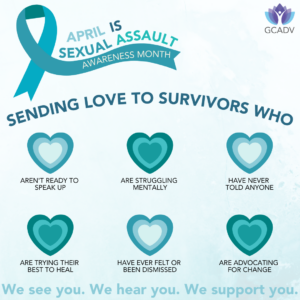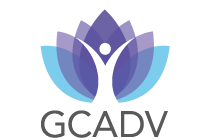
April is recognized as Sexual Assault Awareness Month. Domestic violence and sexual assault often share similar dynamics of power and control. Perpetrators use various tactics to maintain power over their victims, including physical violence, emotional abuse, manipulation, and coercion. In both situations, the perpetrator seeks to assert dominance and control over the victim. Many individuals who experience domestic violence also experience sexual assault, and vice versa. This overlap underscores how these forms of violence are interconnected and can exacerbate the trauma experienced by survivors. For example, a victim of domestic violence may also experience sexual violence within the context of their abusive relationship. By recognizing the intersectionality of domestic violence and sexual assault, we can better understand the complexities of these issues and work towards more inclusive and effective responses that support all survivors.
Domestic Violence and Sexual Abuse Statistics: (National Coalition Against Domestic Violence)
- Intimate partner sexual assault and rape are used to intimidate, control and demean victims and survivors of domestic violence.
- Intimate partner sexual assault is more likely than stranger or acquaintance assault to cause physical injury.
- Between 14% and 25% of women are sexually assaulted by intimate partners during their relationship.
- Between 40% and 45% of women in abusive relationships will also be sexually assaulted during the course of the relationship.
- Over half of women raped by an intimate partner were sexually assaulted multiple times by the same partner.
- Women who are sexually abused by intimate partners report more risk factors for intimate partner homicides than non-sexually abused women.
- Women who are sexually abused by intimate partners suffer severe and long–lasting physical and mental health problems, similar to those of other rape victims. They have higher rates of depression and anxiety than women who were either raped by a non-intimate partner or physically but not sexually abused by an intimate partner.
How to Offer Support (NoMore.org)
- Get Resources
- Don’t Be Afraid to reach out and ask for help
- Georgia Network to End Sexual Assault
- Supporting Survivors
- What to say and how to help
- Intervening
- Tips for how you can respond to violence when it’s occurring.
- Bystander Tips & Scenarios
- Real life examples to help prepare you to take action

There are over 30 Sexual Assault Crisis Centers in Georgia. Reaching out to a sexual assault crisis center is a brave step towards healing. Remember, you don’t have to report the assault right away. Take your time, prioritize your safety and well-being, and know that support is always available.
NOTE: The pins are placed on the map by using the zip codes only. They do not represent the exact location of the Rape Crisis Center to protect those utilizing the services.
For more information, please call your nearest center.
Incarcerated victims may contact 1-800-656-4673.
http://www.gnesa.org/page/rape-crisis-centers-georgia
